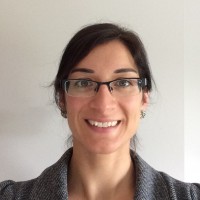After the apocalypse
It’s easy to get irritated with the way General Practice has changed during COVID, from the comfortable, family-orientated approach, to a more tech-based, hands-off, online version where we often can’t see or touch our patients. Whilst lockdown forced the swift reconfiguration of our appointment lists, surgeries worked incredibly hard to find workarounds enabling us to continue to care for patients and protect staff, despite the restrictions. Luckily, people working in General Practice tend to be very creative. We’re lucky to get to know patients and families over a number of years, gaining an insight into not just their symptoms but their background, support network, and their highs and lows. This means we have a lot of very useful information to knit together when we’re trying to help patients shape solutions for whatever it is that might be worrying them when they come through the door. For many patients with long-term conditions, the reassurance of seeing their nurse or GP, and the familiarity of the warm welcome from the reception staff is a huge factor in helping them stay well.
Lockdown hasn’t made this impossible, but it has been hard. And weird. Walking through deserted waiting rooms, seeing closed doors and ‘no entry’ signs everywhere, deliberately keeping patients waiting outside rather than welcoming them into our buildings, and avoiding physical contact wherever possible. No human touch. That goes against everything it means to be a doctor! We’ve avoided coffee break gatherings, instead catching up over Zoom or Microsoft Teams, or wearing masks in front of colleagues when we cannot keep 2m away. There’s been a lot of dancing around just to get milk from the fridge, or to deposit equipment or letters in Reception, sneaking past people and hoping they don’t grab you for a quick Conga. Well, er, maybe not!
Some of the changes, however, have been very positive. For instance, in the small network of practices just north of York, Millfield GP Dr Paula Evans said that prior to COVID, “strong working relationships were maintained by our eco-unfriendly driving to meetings across the big patch”, but with the immediate adoption of online meetings, travel was reduced, saving time and money, and she is optimistic this positive environmental change will continue. Likewise, Jorvik-Gillygate who were already proponents of greener practice, are now doing video rounds for their patients in care homes, enabled by nurse colleagues there.
It’s not only patients who benefit from these changes, but staff too. York’s largest practice, Priory Medical Group, implemented daily team briefings, designed not only to update on the day ahead but to keep in touch with staff members isolating at home. They also designated a site specifically for vulnerable high-risk staff to come and work, enabling them to feel less isolated from the rest of the team but without the risk of coming into contact with unwell patients.
The overwhelming camaraderie and enthusiasm to create new ways of doing things will also outlast this pandemic. Staff roles have altered, there have been lists solely devoted to ringing patients with chronic conditions to provide reassurance and offer alternatives like vitamin B12 tablets instead of 3-monthly injections, and reception staff have been key in explaining what to expect when visiting the surgery for patients who do end up coming down for face-to-face appointments. Teams have devised drive-through blood taking clinics and immunisation clinics, and plans are afoot to do ‘flu clinics like this later in the year. Medicines are being dispensed through reception hatch windows at The Old School Medical Practice, or even home-deliveries for some very rural patients up in Stillington, and plenty of consultations have been done through glass doors or windows.
Whatever the “new normal” looks like, whenever it occurs, it’s gladdening to know that some of the changes we’ve made are truly improvements that will benefit patients and staff alike, and we should be very proud not only of Primary Care’s swift response to the pandemic, but of our subsequent and ongoing innovation. Well done us.





